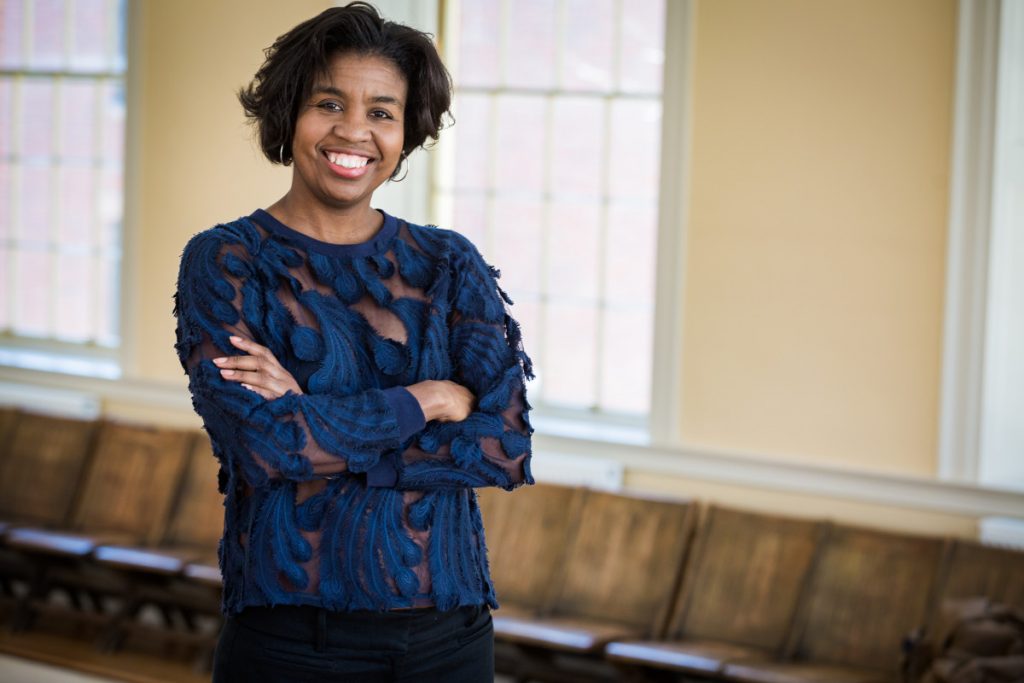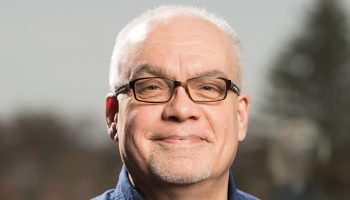SARAH VEST – STAFF WRITER

To January O’Neil — Week Seven’s poet-in-residence for the Chautauqua Writers’ Center — place is an important aspect of writing, but it can be difficult to reckon with when one is stuck in the same place for months on end.
O’Neil is an associate professor at Salem State University, and from 2019 to 2020 she served as the John and Renée Grisham Writer In Residence at the University of Mississippi, Oxford. She is the author of three poetry collections: Rewilding, Misery Islands and Underlife.
While she was living in Mississippi, O’Neil found herself learning about the story of Emmett Till from a “unique vantage point.” Shortly before she moved from Massachusetts to Mississippi, three Ole Miss students had shot up the memorial that marked where Till was pulled from the Tallahatchie River. O’Neil was interested in the way the trauma to the land continued to influence the area and its people.
“Mississippi is an amazing place,” O’Neil said. “It’s beautiful, but it has this history.”
According to O’Neil, this was the first time that she had attended a retreat that was more than a week long, and she was surprised to find how open to and influenced by location she was.
“Place is very important,” O’Neil said. “Place almost becomes another character or feature in the work.”
This interest in place is where the inspiration for her Brown Bag lecture — titled “Writing on Pandemic Time” — happening at 12:15 p.m. EDT Tuesday, Aug. 10 on the CHQ Assembly Virtual Porch, came from.
“We’re in our homes, (and) we’re looking at the same trees in our backyard or the same street with the cars passing by, and trying to find magic, trying to look at something that you’ve seen 100 times, 1,000 times, and come back to it with new eyes,” O’Neil said.
O’Neil said the last 16 months inside have been difficult for everyone. What she has noticed is the need to acknowledge that everyone one has weathered quarantine differently and that for some, it has been hard to continue to generate work. She wants to focus on how to move forward and begin to see the world with new eyes.
“If you’re writing about the world outside your window and you’re staring at the birds in the bird feeder, how many bird feeder poems make sense?” O’Neil asked.
She said that when it comes to her work, her “heart is narrative, but (her) work tends to be lyric in nature.” What she really wants to accomplish at the end of the day is to tell a good story. To do that, she said she tends to write in the moment and tries to be observational.
“I think that most writers have about five or six topics that they come back to all the time. For me that might be love, family, sex, race and work,” O’Neil said. “My perspective changes over time. … I’m trying to find the best meaning and the best representation for my experience.”
O’Neil hopes that people walk away from her Brown Bag reassured that even though writing is a solitary act, when writers come together, they can “share and discuss, and dream and empathize” with each other.
“We are a community,” O’Neil said, “even if we’re a spread-out community.”




